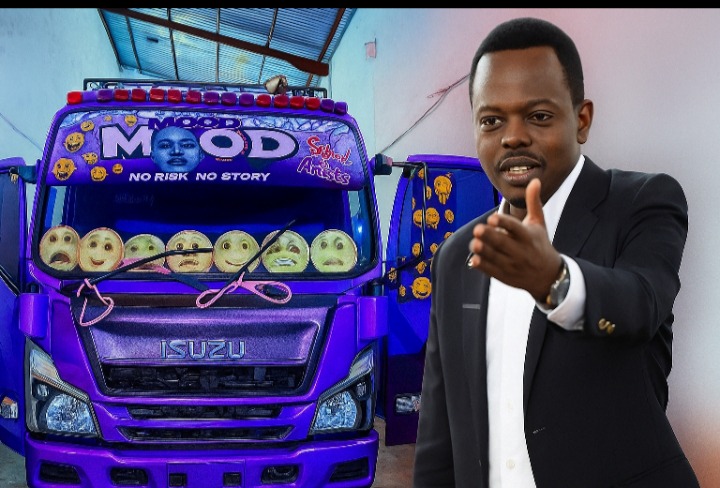George Ruto, son of President William Ruto, has once again grabbed national attention—this time not for politics, but for art. His newly unveiled matatu, Mood, is causing waves in Nairobi CBD with its fierce graffiti and Gen Z energy.
Launched with flair, Mood doesn’t look like your typical public service vehicle. With bright purple paint, comic-style illustrations, emoji decals, and bold female portraits—including one with a nose ring and her tongue out—it resembles a moving comic book more than a matatu.
While many youths have praised the design as a raw, expressive showcase of urban creativity, not everyone is cheering.
Some Kenyans took to social media to warn others about possible hidden meanings behind the art. One viral comment read, “Wakenya mjichunge jamani, these are spiritual signs.”
The debate has since taken on a life of its own. Is the matatu’s art an unapologetic celebration of youth identity—or something deeper and darker?
Either way, George Ruto’s Mood is doing exactly what matatu culture does best—turning heads, sparking conversation, and making noise on the streets and online.
Whether spiritual or stylish, one thing’s clear: Mood is a movement.



